 Petzlover
Petzlover Both Ibizan Hound and Perro de Toro are originated from Spain. Ibizan Hound may grow 10 cm / 4 inches higher than Perro de Toro. Ibizan Hound may weigh 11 kg / 24 pounds lesser than Perro de Toro. Both Ibizan Hound and Perro de Toro has almost same life span. Ibizan Hound may have more litter size than Perro de Toro. Both Ibizan Hound and Perro de Toro requires Low Maintenance.
Both Ibizan Hound and Perro de Toro are originated from Spain. Ibizan Hound may grow 10 cm / 4 inches higher than Perro de Toro. Ibizan Hound may weigh 11 kg / 24 pounds lesser than Perro de Toro. Both Ibizan Hound and Perro de Toro has almost same life span. Ibizan Hound may have more litter size than Perro de Toro. Both Ibizan Hound and Perro de Toro requires Low Maintenance.
 This lean, speedy and agile hound dog looks and acts very much like a Pharaoh Hound except the Ibizan Hound is larger and a different color. The image of dogs that look like the Ibizan have been seen since 3400 BC in Egypt. The dogs were probably brought by sailors to Ibiza and surrounding islands. They came about 700-900 BC. It is believed that they actually came for the island of Elvissa and Spain, where they speak Catalan. It was also known in France as the le chanigue. There job was the same. To hunt rabbits.
This lean, speedy and agile hound dog looks and acts very much like a Pharaoh Hound except the Ibizan Hound is larger and a different color. The image of dogs that look like the Ibizan have been seen since 3400 BC in Egypt. The dogs were probably brought by sailors to Ibiza and surrounding islands. They came about 700-900 BC. It is believed that they actually came for the island of Elvissa and Spain, where they speak Catalan. It was also known in France as the le chanigue. There job was the same. To hunt rabbits.
They were fast hunting greyhound type dogs. They hunted for rabbit for the Ibizaners and themselves. These dogs hunt by day and by night. They are not just sight hounds, they also hunt by smell and hearing, in packs or by themselves. They use their sight to find and corner the prey. Then they act like retrievers and bring it back to the hunter. Their function and look is very similar to several other dogs such as the Pharaoh Hound, the Greyhound, the Portuguese Podengo, the Cimeco dellEtna and the Podence Canario. The Ibizan is larger than any of these, but all these breeds are considered to be “primitive”.
Within the breed itself there are smooth, wire and longhaired Ibizan Hounds. The Smooth is by far the most common. A great jumper, nimble runner built for stamina, the Ibizan Hound was just what the island people needed. The breed lived in isolation on the island for many centuries, under a variety of rulers including the Romans, Egyptians, Vandals, Carthaginians, Chaldeans, Arabs and Spanish. Because of the harsh island conditions, the farmers only allowed the best hunters among the Ibizan Hounds to procreate thus assuring a breed that is unchanged from ancient stock.
By 1950 the Ibizan Hound was brought to America. Because this dog is not a pet but a working machine, it took awhile for the breed to become popular enough to be recognized by the American Kennel Club (AKC) in 1979. Still the Ibizan Hound is a rare breed with the female being a better hunter than the male. One of the most common activities of this breed in the U.S. is lure coursing. These events are sponsored by AKC and ASFA as well as racing events in the NOTRA and LGRA.
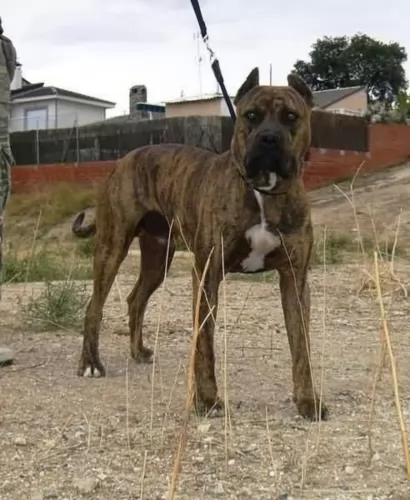 The rare Spanish Perro de Toro seems to have unclear origins, with some saying the dog is a direct descendant of the Toulouse Mastiff, while others say that the dog was developed by crossing the Alano with the Dogue de Bordeaux.
The rare Spanish Perro de Toro seems to have unclear origins, with some saying the dog is a direct descendant of the Toulouse Mastiff, while others say that the dog was developed by crossing the Alano with the Dogue de Bordeaux.
The dog hails from Spain and was once used as a fighting kind of dog but today it is essentially a family pet. The dog is an ancient breed, an ancestor of many of the molosser breeds that are around today.
 The breed is agile, elegant, athletic and graceful. At the same time the Ibizan Hound is a fierce hunter travelling at unreal speeds to catch his rabbit prey. They are a hardy breed with a lean and long neck, and a lean, muscled body with laid back shoulders. The ears are specific to the breed, with a broad base leading to long, beautiful ears. They have tan eye rims, nose, foot pads, and ears. The eyes themselves are an amber with an intelligent and alert expression.
The breed is agile, elegant, athletic and graceful. At the same time the Ibizan Hound is a fierce hunter travelling at unreal speeds to catch his rabbit prey. They are a hardy breed with a lean and long neck, and a lean, muscled body with laid back shoulders. The ears are specific to the breed, with a broad base leading to long, beautiful ears. They have tan eye rims, nose, foot pads, and ears. The eyes themselves are an amber with an intelligent and alert expression.
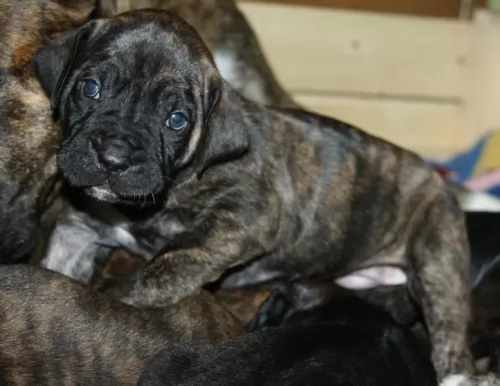 This is a strong, powerful, large breed of dog, making a good watchdog and guardian. He can be anything from 56 to 64cm in height and weigh between 34 and 40kg.
This is a strong, powerful, large breed of dog, making a good watchdog and guardian. He can be anything from 56 to 64cm in height and weigh between 34 and 40kg.
The nose of the dog is broad and black, the ears are set high and droop over slightly,making them floppy ears, but they have always been cropped to stand up erect.
He's a sturdy dog and the tail is fairly thick at the base, tapering to a point. These days it tends to be undocked and left long. The neck is strong and powerful too and the head brachycephalic. The short coat includes colors such as yellow, grey, fawn and red with the black mask.
The Spanish Bulldog looks fairly intimidating and he will certainly need training and socialization if he is to be obedient and well behaved.
He isn’t aggressive but is confident, dominant, fearless, loyal and also loving towards his owner. He is devoted towards his human family and is good with children. Like any mastiff type breed, he will need a firm, kind, consistent, patient owner. This is the kind of owner who will understand this breed type and take time out with him to exercise him and provide him with mental and physical stimulation so as to prevent boredom.
 They love children but be careful they do not knock them over and don’t let the children play to rough.
They love children but be careful they do not knock them over and don’t let the children play to rough.
Exceptional jumping ability, speed and stamina.
Must have a large fenced yard and a place to run full out.
Very intelligent with excellent learning ability.
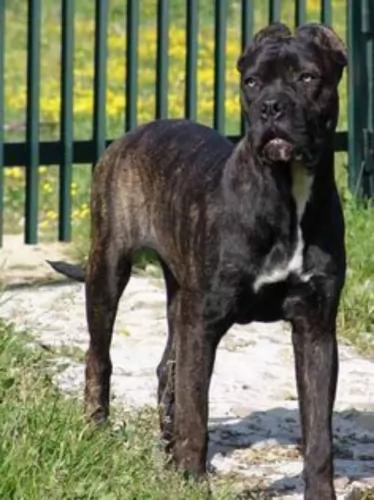 Contrary to what many people think, the temperament of the Perro de Toro is calm and well balanced. This is a reliable, loving, loyal dog who wants to protect his human family.
Contrary to what many people think, the temperament of the Perro de Toro is calm and well balanced. This is a reliable, loving, loyal dog who wants to protect his human family.
He gets on well with children and with pets in the home and when trained and socialized, this intelligent dog is well mannered, obedient and sometimes even submissive.
True, the Perro de Toro has a history of being involved in all kinds of things, from hunting to fighting and also being a working dog, but he is now waiting to show you what a splendid pet he can be if he is raised by the right kind of people.
 Despite being isolated on the islands for all those years, the Ibizan Hound has several tendencies toward medical issues:
Despite being isolated on the islands for all those years, the Ibizan Hound has several tendencies toward medical issues:
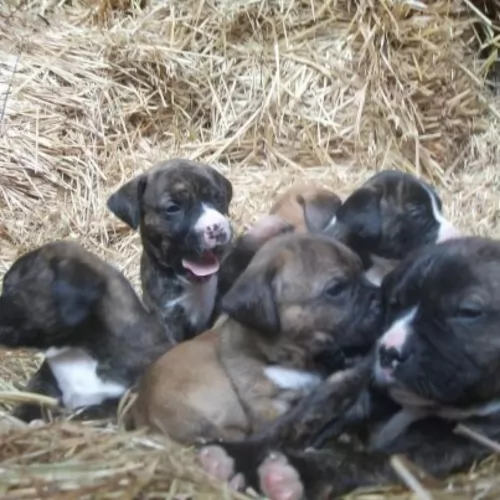 This is a dog breed that is fit and healthy, but to keep him that way you want to make sure he has enough exercise, love and nutritious food.
This is a dog breed that is fit and healthy, but to keep him that way you want to make sure he has enough exercise, love and nutritious food.
He is not known to suffer from any particular disease, but even so, it is wise to be aware of some of the common dog illnesses that your dog could pick up so you can get veterinary help for him just as soon as possible.
With cancer, cells grow rapidly and invade tissue. Dogs can get any of the many cancers there are. Both hereditary and environmental factors can contribute to the development of cancer in canines. Cancer can show up as lumps, swelling, sores that won’t heal, weight loss and difficulty with breathing.
Heartworms are transmitted from one animal to the next by mosquitoes. These worms live in the heart and pulmonary arteries of an infected animal, travelling through the bloodstream and causing havoc. Heartworm is dangerous and can actually be life threatening. Symptoms include coughing, vomiting, battling to breathe and weight loss.
This is a viral disease that can strike terror in anybody who has seen an animal with rabies. It affects the brain and spinal cord of your dog. It is preventable through means of a vaccine. Once symptoms appear, it is a disease which is nearly always fatal.
 Your Ibizan Hound is an athlete and needs to be fed like one. As a puppy he needs high quality breed or group (hound) specific food. Feed her 3-4 times a day based on calories. A puppy needs about 866 calories each day.
Your Ibizan Hound is an athlete and needs to be fed like one. As a puppy he needs high quality breed or group (hound) specific food. Feed her 3-4 times a day based on calories. A puppy needs about 866 calories each day.
If your dog participates in sports as adults, they need between 1450 and 2900 calories each day. The exact amount depends on how much activity the dog is engaged in. Feed at least 2 times a day.
Great speed and stamina
Your Ibizan Hound is a working athlete. He needs a lot of exercise and he needs a chance to run full out so access to land is essential. It can be a large back yard, or it can be a dog park. No matter what it is, it is essential for the Ibizan Hound. She will also require long walks at least a couple times a day. However, do not over exercise your puppy. They are great jumpers as well as runners.
The sport of lure coursing was made for the Ibizan in the same way that it was made for the Greyhound. They are good at Flyball and agility as well.
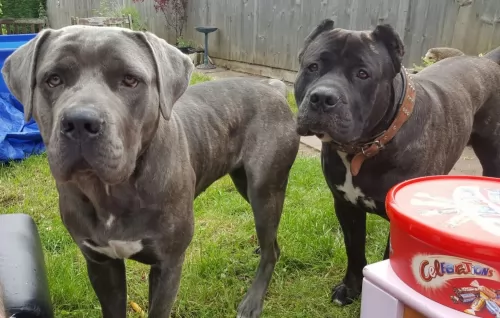 If they are not being used as working dogs, they are family pets, and you need to give them a lot of daily exercise. You will need to give him some walks or hikes and allow him a good run in the country.
If they are not being used as working dogs, they are family pets, and you need to give them a lot of daily exercise. You will need to give him some walks or hikes and allow him a good run in the country.
The Perro de Toro is a short haired dog, and as a moderate shedder, he isn’t going to require too much grooming. A brushing twice a week will help get rid of his hair.
When brushing him, turn it into a bit of a grooming session and check inside his ears, look at his eyes and try to look inside his mouth. He can’t tell you if he has terrible toothache from a rotting tooth and he will rely on you to check his teeth.
Mastiff type dogs need a wholesome diet to remain strong and active. If you are going to feed your pet one of the commercially manufactured dog foods, make sure it is one of the top quality ones.
Avoid the ones that use lots of colorants, preservatives and unhealthy fillers as these can make your dog sick. Try and give him some home-made food which can be added into his dry kibble occasionally.
Boiled chicken, brown rice or pasta and some vegetables such as carrots, sweet potato and spinach chopped up will be excellent for him and will ensure he doesn’t battle with digestive upsets. If you can, every now and then try to include some raw meat for the benefit and health of your pet. Never leave him without a bowl of fresh, cool water.